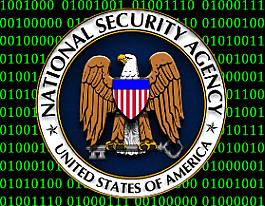Apologists for widespread, secret surveillance of Americans’ phone and Internet usage have pointed out that the government has only been collecting “metadata”: the number, time and location of conversations, and not actual content, while civil liberties advocates have argued how a surprising amount of information can be deduced from metadata. The National Coalition Against Censorship (NCAC) has joined over 60 other co-sponsors on a petition that could prove just how illuminating metadata can be.
“The government has argued that metadata may reveal patterns without violating privacy. If this is the case, then certainly ordinary Americans deserve equivalent insight into the surveillance apparatus itself,” said NCAC board member Chris Peterson. “If, on the other hand, the government feels uncomfortable giving Americans access to its metadata, then why should Americans feel comfortable giving the government access to theirs?”
The petition calls on the Obama administration to allow technology and communications companies to publish transparency reports listing the number and frequency of government surveillance requests, including which agencies are lodging requests and how many users and devices are affected. Companies like Apple, Google, and Tumblr are currently barred from releasing reports on government surveillance requests, making civic oversight extremely difficult. The petition further calls on the executive branch to develop its own reports, granting watchdogs a one-stop-shop for tracking the breadth and nature of domestic digital surveillance.
The petition, organized by The Center for Democracy and Technology (CDT), can be accessed at http://weneedtoknow.info. Social media users can use the #WeNeedToKnow tag to spread the word.
“As an organization concerned about the rights to free speech and free access to information, we are deeply concerned by the level of secrecy surrounding government surveillance programs: a Big Brother government that can see every communication of its citizens, but remains above accountability itself is an affront to the fundamental principles this country was built upon” noted NCAC Director of Programs Svetlana Mintcheva.
NCAC previously signed an effort by the Electronic Frontier Foundation demanding a congressional inquiry into domestic surveillance, and has been a steadfast critic of the USA PATRIOT Act and related programs like PRISM.


